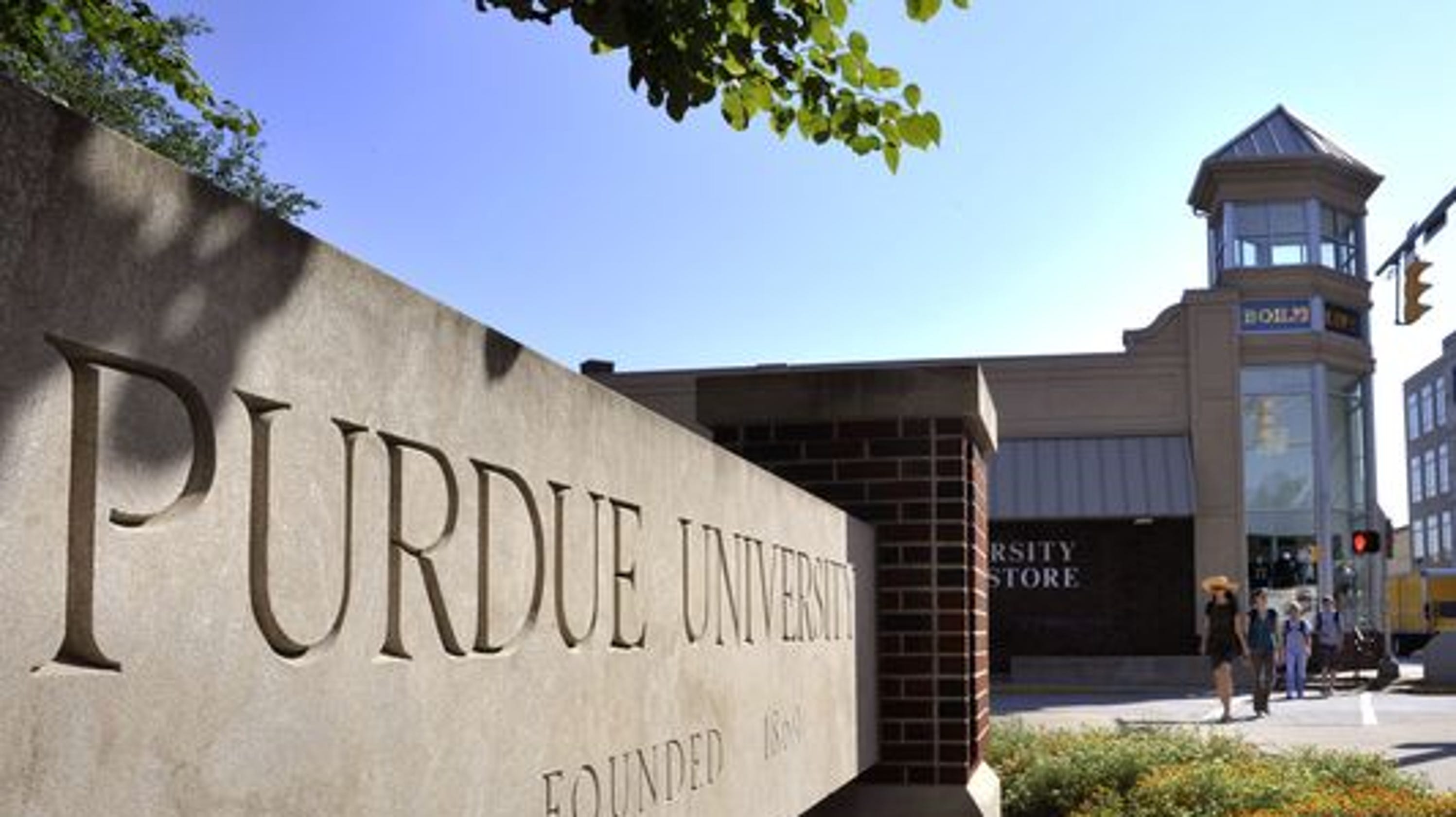Masters Advantage: Business Analytics or Accounting?

A specialized master’s degree can be a valuable tool for enhancing your career prospects. If you have a specific career in mind—financial analysis, marketing, statistics, etc.—a master’s degree in your specialty can provide you with the advanced training you need to be successful. So, the question is, what specialized masters is right for you and will give you the advantage you want?
To help you out, we’re putting the most popular master’s degrees head-to-head in our new series. First up, we’re comparing Business Analytics and Accounting.
What is a Master’s in Business Analytics?
A Master’s in Business Analytics is designed for students interested in big data. These individuals are interested in using machine learning algorithms to process data and draw conclusions in everything from sports to consulting, manufacturing, and healthcare. It’s all about making sense of vast amounts of data to streamline business.
What is a Master’s in Accounting?
A Master’s in Accounting is exactly what it sounds like—it’s hyper-focused on accounting. Individuals who choose this path are interested in completing their CPA examination and pursuing a career in corporate accounting. You’ll be prepared to take a strategic accounting role in audit, tax, financial management, and more.
Business Analytics or Accounting: Coursework
There’s some overlap in the coursework you’ll take as an accounting master’s student and a business analytics student. Both master’s programs delve into financial topics and include finance-related courses. In fact, some Master’s in Business Analytics programs offer a professional track in finance.
Also, in both cases, you’ll dive into analytical techniques and data modeling—though in the Accounting program it will always emphasize finance and accounting areas whereas Business Analytics tends to be more generic.
However, that’s where the similarities end. In Business Analytics, you’ll dive deep into computer programming, statistics, machine learning, and visualization. On the other hand, a Master’s in Accounting will take you into financial reporting, auditing, business taxation, business law, and management accounting.

Business Analytics or Accounting: Accessibility
Both master’s degrees can typically be completed in 12 months with some programs lasting up to two years. In addition, students can complete either program through full-time, part-time, online, or hybrid tracks. What’s different is the application process and what type of student is best suited to each program.
Business Analytics students must be mathematically inclined and gifted in quantitative fields. Many of these Master’s programs are STEM-designated, so candidates must be prepared to demonstrate high grades and test scores in these subjects.
Master’s in Accounting applicants are expected to have a strong background in accounting, often having earned their undergraduate degree in the same field. Work experience is not typically required unless the student has no practical training in accounting.
Business Analytics or Accounting: Careers
As a Business Analyst, you may earn a higher salary than an accountant when starting—around $15,000 more—and you’ll have more job opportunities. A Master’s in Business Analytics graduate can work in a variety of analyst roles in everything from marketing to finance, strategy, and statistics. While, on the other hand, a Master’s in Accounting graduate is typically regulated to an accounting, tax, or audit career.
Business Analysts are in high demand and have many opportunities regarding their careers, typically earning around $85,000 to start. They can work in almost any industry and in a variety of job functions, including:
- Business analyst
- Budget analyst
- Financial analyst
- Corporate strategy analyst
- Actuary
- Social media data analyst
- Business intelligence analyst
- Machine learning analyst
Master’s in Accounting graduates are also in high demand and can work in a range of industries. Everyone from public accounting firms to government organizations, financial institutions, and nonprofits need accountants. However, when it comes to job functions, graduates are typically limited to working as an accountant or an auditor earning around $69,000 to start.
Business Analytics or Accounting: The Top Programs
To earn your Master’s in Business Analytics or Accounting, there are many top programs across the country that are highly regarded. It all depends on your specific interests and goals.

If you want the best of both worlds, the USC Marshall School of Business is the only program to be in the top five for both degrees. It is highly regarded for offering great flexibility and quality curriculum.
In the Midwest, one of the top Master’s program for Business Analytics can be found at Purdue University’s Krannert School of Management. Its MS Business Analytics and Information Management program is 11 months long, affordable, and STEM-oriented. For a Master’s in Accounting, you should look toward the University of Illinois Gies College of Business, which offers the best STEM-designated accounting program in the country with a 98 percent job placement rate.
On the East Coast, MIT Sloan offers the best Master’s in Business Analytics program with 100 percent of the most recent graduating class earning employment offers by graduation. Whereas NYU Stern an excellent Master of Science in Accounting, ranked 9th overall by the U.S. News & World Report.
Top 5 Healthcare Masters Programs in Western Canada

Healthcare in Canada is a booming business. In 2018, total health expenditure was expected to reach $6,839 per person or $253.5 billion total—11 percent of Canada’s GDP. So, it should be no surprise that healthcare careers are surging.
Continue reading…5 Questions With The Purdue University Krannert School of Management

In our latest installment of the MetroMBA “5 Questions” series, we speak with members of the Purdue University Krannert School of Management. The business school is introducing a new Online MBA program, arriving early 2020.
1.) Why Was the Time Right for Purdue to Introduce an Online MBA?
“It’s an exciting time for Purdue University and the Krannert School of Management, with many new online initiatives, all of which have business components. From professional students to corporate partners, the flexibility of online delivery is a requirement. Because of this, now was the right time to rethink how Krannert is engaging online strategically and the first step in that strategic plan is offering our MBA fully online.”
2.) What Will the Program Offer That Other Online MBA Programs Don’t?
“At the Krannert School of Management, we are very focused on the ROI for the graduate in conjunction with an exceptional student experience. The Purdue Online MBA will focus on preparing the student for a technological world and provide an exceptional student experience via team-based coursework, experiential learning and excellent student support, all the while limiting cost to provide the high value that is expected from a Krannert program.”
3.) Is This a Sign for More Online Programs to Come at Purdue Krannert?
“Yes, Krannert will be launching a series or additional courses, certificates and master’s programs that build off the framework provided by the Online MBA program. Opportunities include topics such as: business analytics; leadership, negotiations & change management; innovation & tech commercialization; economic policy; and interdisciplinary options. Collaborations across the Purdue campus will provide a rich set of offerings and flexible pathways, allowing students to use course and certificate work to build to a full degree.”

4.) For Potential MBA students, What Would You Say is an Advantage in the Online Program in Contrast to Full-Time or Part-Time Programs?
“All three are great options that serve a different need and it is a very individual choice on which modality is best for the student. If flexibility is the primary need, the online program is the best option. The ability to fit the program in at your own pace and on your own schedule from anywhere in the world is a huge advantage for working professionals. Online programs also have richer elective options than many part-time programs.”
5.) What is the Perfect Kind of Student for the Purdue Krannert Online MBA?
“The Purdue Online MBA program from Krannert is designed for working professionals. A perfect student would be someone with 3–10 years of working experience who is moving into a team lead, management position or looking to start his or her own business. We emphasize analytics throughout the curriculum so potential students should be analytically minded and appreciate technology, although we do expect students from both STEM and non-STEM undergraduate programs to be part of the MBA program. Finally, the ideal student should be hungry to lead and move their career forward.”
The Class of 2020 Begins at Yale SOM

In late August, the newest group of Yale School of Management Master of Advanced Management, Master’s Degree in Global Business, and Society (GBS), and Master’s Degree in Systemic Risk students officially began their Class of 2020 journey.
Yale SOM deans and faculty members introduced the 120 one-year Master’s students at the Edward P. Evans Hall’s Zhang auditorium. Formally introducing the new students, Deputy Dean Anjani Jain said:
“You are entering the school at a time of exciting transition as Dean Kerwin Charles takes the helm. “Your presence here is a mark of your ambition to make a lasting contribution to both private industry and the public good.”
MBA graduates that are members of the Global Network for Advanced Management are welcome to enroll in the Yale SOM Master of Advanced Management. The Master’s Degree in Global Business and Society is typically geared towards younger students that may not have an MBA yet, or are currently members of the Global Network for Advanced Management.
Andrew Metrick, the Janet L. Yellen Professor of Finance and Management, also spoke at the welcome event, telling new Yale SOM students, “It’s been a fantastic experiment that has now grown into a core part of the school.”
Valentina Antill, Managing Director at Citigroup and ’94 alum, also addressed students at the event, starting off the introductory week at Yale SOM. Students also participated in workshops, tours, team projects, and more.
For more information on the Class of 2020 and details about Yale SOM Master’s options, click here.
No GMAT? Check Out Some of Our Favorites Schools that Offer Waivers

Applying to MBA programs can be a labor intensive and overwhelming task, and one may wonder how necessary it is to add the GMAT to an already lengthy to-do list. It’s important to note that the GMAT helps admissions boards to efficiently gauge a student’s overall readiness for the MBA in comparison to other applicants, regardless of the rigor of their undergraduate work. Also, b-schools use the average GMAT of successful applicants in order to bolster their rankings in certain publications. Some programs do, however, accept GMAT waivers.
Here is a look at some top schools that do not require GMAT scores, along with a summary of their waiver requirements.
The Rutgers Business School offers MBA students to forego the GMAT or GRE if they have eight or more years of professional experience and an undergraduate GPA of 3.0 or higher. Students with a Master’s degree and at least five years of full-time work experience may also apply without taking the GMAT.
La Salle University has several possibilities for students who have not taken the GMAT. Potential MBAs can obtain a waiver if they have graduated from an AACSB-accredited school with a minimum cumulative GPA of 3.2; a minimum GPA of 3.0; and three years of work experience. La Salle’s MBA program director evaluates each applicant’s work experience to determine whether the waiver may be granted.
Applicants with a CPA license or a CFA Charter may also apply without the GMAT, as may those with a Ph.D. or a Master’s degree or higher from an accredited institution. A cumulative GPA of 3.0 or higher is required for applicants with a Master’s degree.
LaSalle also has a ‘qualified admission’ option in which a student with two years’ work experience and a GPA of 3.0 or higher from an accredited school can waive the GMAT requirement. Qualified students may take up to four MBA courses, and with an overall GPA of 3.3, will not be required to take the GMAT. ‘Conditional Acceptance’ is also an option, in which a limited number of students are admitted for one semester, but then must take the test in order to remain enrolled and gain financial aid eligibility.

University of Delaware’s Lerner College of Business and Economics gives waivers to MBA students if they possess a terminal degree (Ph.D., MD, or JD, for example) or if they have four or more years of professional experience at the full-time level. Other conditions under which a student may apply with no GMAT are a minimum undergraduate GPA of 2.8; a minimum grade of ‘B’ in two non-introductory level statistics or calculus courses; and an acceptable level of writing ability and English proficiency.
Lerner also grants exceptions to the GMAT requirement for undergraduates of the school who have fewer of four years of work experience and a GPA of 3.0 or higher, in addition to ‘B’ grades or better in 200 level statistics or math courses.

The Pace University Lubin School of Business MBA admissions board considers waivers of GMAT scores for students with a 3.2 GPA or above for all undergraduate coursework. For those applying to the one year fast track MBA in Financial Management or Marketing Management, applicants need a cumulative GPA of 3.3 or above and a B grade or better in all undergraduate business courses.

Babson College’s F.W. Olin College of Business offers GMAT waivers to all applicants to the Blended Learning MBA program, as students applying to this track are required to have extensive work experience. Additionally, those applying to Babson’s evening MBA do not have to submit GMAT scores in certain circumstances, such as a grade of ‘B’ or better in two or more quantitative undergrad and/or graduate courses or exhibited quantitative and analytic skills in a work setting.
Babson evening MBA applicants who have a professional certificate with a quantitative focus such as a CPA or CFA may also apply without taking the GMAT. Other instances in which evening MBAs may apply without the test are a 3.0 GPA or greater throughout their undergrad degrees, a prior degree from Babson, or completion of Babson’s Certificate in Advanced Management (CAM) program.

The GMAT requirement may also be waived at DePaul University’s Kellstadt Graduate School of Business if an applicant meets some specific criteria. With a bachelor’s degree from an accredited university along with five years of work experience, a student may petition for a waiver. Work experience must include both management and quantitative responsibilities.
Like other programs mentioned above, the GMAT may not be required if a student already has a PhD, JD or MD, or a Master’s degree in finance. An LSAT score of 160 or higher along with an undergraduate degree, or completion of all parts of the PE exam may also exempt an applicant from the GMAT requirement.
Students applying to the part-time MBA program who have attended DePaul’s Driehaus College of Business for their undergraduate work may receive a waiver with a minimum GPA of 3.2 and at least two years of work experience.

Suffolk University’s Sawyer School of Business allows students who have taken the CPA exam to request a waiver, and also those who have taken the first level of either the CFA or the FRM exams. Second semester seniors and undergraduate business students applying for an MBA may waive the GMAT with a cumulative GPA of 3.3 or greater.
Students with work experience and certain GPA requirements may waive the GMAT; those who have worked for two years in a relevant position with an average grade point of 3.4 may request a waiver, as can those who have four years of work experience and a 3.3 GPA. With six years of work experience and at least a 3.2 GPA, an applicant may also waive the submission.
Law school graduates (from ABA approved schools), along with MSA, MSF, MSBA or MST from an AACSB approved institution are eligible for waivers. Sawyer allows MBA applicants who are in their second senior semester of undergraduate music management at Berklee College to request a GMAT waiver as well, provided the student maintains a 3.3 minimum GPA. Recent Berklee graduates may also request exemption from the GMAT requirement.

Golden Gate University’s Edward S. Ageno School of Business has several options for students who wish to apply without the GMAT. Those with a Master’s degree or higher from any accredited US institution may be exempt, along with any applicant with a 3.5 GPA or greater during undergraduate studies. Applicants with a CPA or other professional license may also petition for the waiver.
Any applicant with proven work experience of five years or more and/or management experience are eligible to waive the submission with approval from the Dean.

At UNC’s Kenan-Flagler Business School, applicants with a CPA or CFA license are eligible for waivers, as are those with a Master’s or Ph.D. in a technical field. Kenan-Flagler does not list minimum GPA requirements for eligibility, and professional experience is evaluated on a case-by-case basis.
It’s also important to note that Executive MBA programs typically offer GMAT waivers. However, applicants usually possess extensive management experience before enrolling.
UC Irvine Introduces New Entrepreneurship Degree

Late last month, the Paul Merage School of Business at the University of California-Irvine has revealed its new Master of Innovation and Entrepreneurship degree. This UC Irvine entrepreneurship Master’s program will officially begin in fall 2019.


